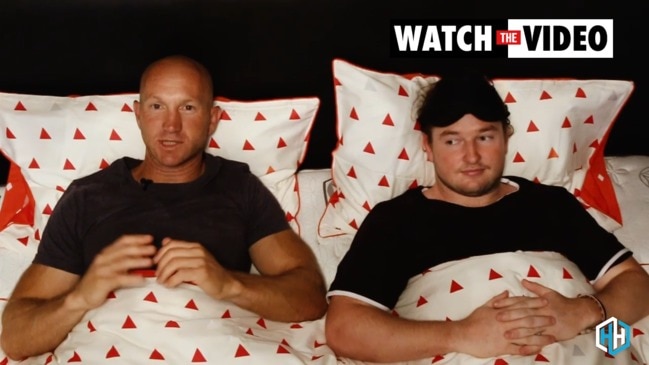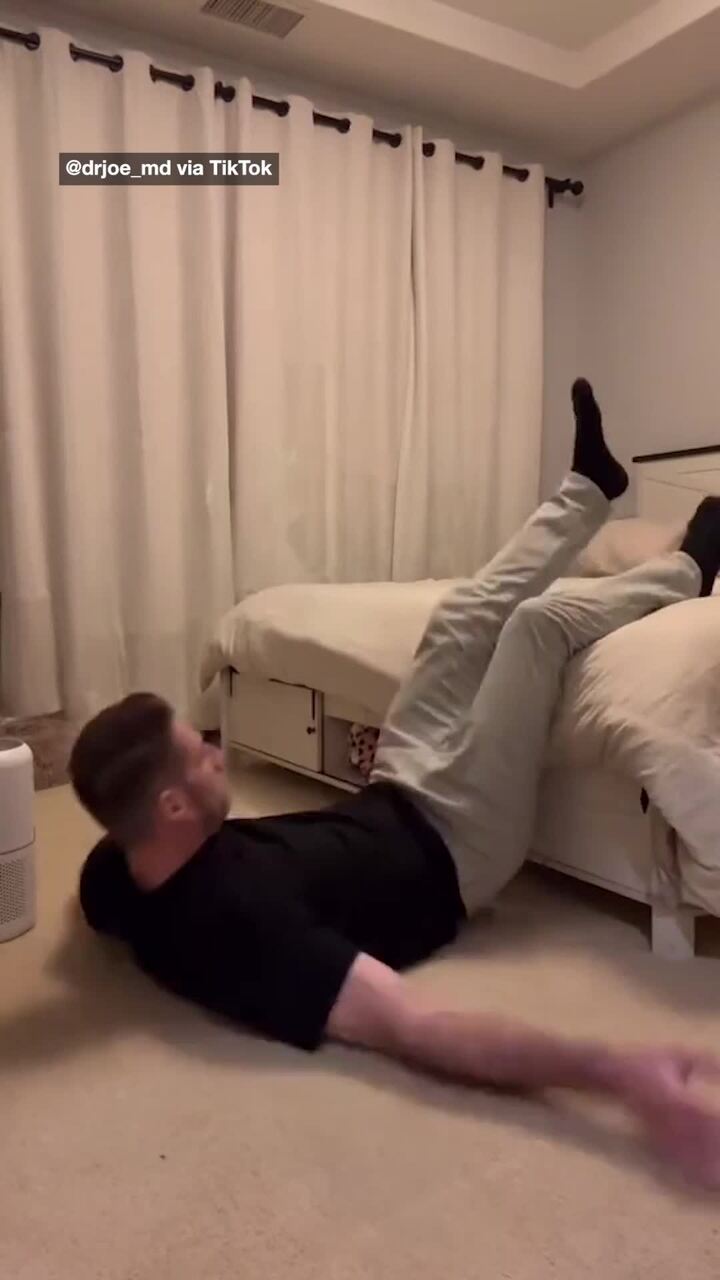‘Sleep separations’ are increasing in popularity, new data shows
New data has revealed an uptick in the number of Aussies who have made a big relationship decisions, prompting warnings from experts.

There’s been a dramatic spike in the number of couples agreeing to part ways in the bedroom as Australia’s growing sleep crisis worsens.
New data shows that nearly one in three Australians struggling to fall or stay asleep three or more times a week, sparking a rise in the number of couples who have embarked on a “sleep divorce”, opting to get their nightly rest in separate beds or rooms – despite ongoing stigma surrounding the decision.
The research, conducted by leading sleep device manufacturer ResMed for its 2025 Global Sleep Survey, has revealed sleep deprivation is so bad that almost 1 in 5 (18 per cent) of Australians have called in sick.
But shockingly, 41 per cent of Aussies are choosing to “just live with” with the consequences of a bad night’s kip, almost double the global average.

“This year’s Resmed Global Sleep Survey found that the top factors causing Australians to have a poor night’s sleep are stress (47 per cent), followed by anxiety (42 per cent) and financial pressures (26 per cent),” Dr. Alison Wimms, Director of Medical Affairs for the company, told news.com.au.
“Screen time, and inconsistent routines also widely affect sleep in Australia.”
Some of those not willing to put up with a poor night’s sleep have decided to embark on a “sleep divorce”, with 61 per cent of Aussies who have ditched their partner at bedtime reporting a better sleep quality.
“26 per cent said it improved their relationship, and almost 16 per cent noted a positive impact on their sex life,” Dr. Wimms added.
“Sleeping separately can also improve sleep quality by reducing disturbances from different schedules, snoring, or movement during sleep.”

However sleeping separately does not work for everybody, with 38 per cent of the 1 in 5 Australians who opted for a sleep separation – often due to snoring and restlessness – stating said they felt their quality of sleep got worse or remained the same.
Alarmingly, almost 1 in 5 of those who have split up at night said they felt their relationship and sex life took a turn for the worse after sleeping apart.
Sydney couple’s therapist Shahn Baker Sorekli however warns that while a sleep separation “can be helpful in some circumstances”, he doesn’t always recommend it.
“The main reason is coming together at the end of the night allows for a bit of a nice routine for the relationship where you can have a moment of connection and intimacy,” news.com.au’s podcast, From the Newsroom.
“I’m not talking about, you know, long deepened meaningfuls in bed. It might just be a little snuggle, might just be reading next to each other, but kind of coming together at the end of the night.
“Being a couple, just unwinding is just a nice point of connection. And if you can maintain a good sleep routine together, it can just be really healthy for the relationship. So you close off the world, you in your room together, snuggling away.”


The clinical psychologist, who authored relationship book The 8 Love Links, said that for those who find sleeping apart “improves sleep quality it’s absolutely a good idea”.
“For example, if one person is a really restless sleeper or somebody has a problem with snoring or perhaps somebody does shift work... and it going to add to the relationship tension, that’s when it’s a good idea,” he shared.
“You’ve just got to be careful not to get into any kind of the pitfalls around it.
Dr Wimms noted that it is often women who report poorer sleep quality and higher rates of mood disruptions than men, explaining the gap was noticeable.
“38 per cent of Australian women struggle to fall asleep at least 3 nights a week, compared to 26 per cent of men,” she explained.
“This is consistent with global numbers where we see women consistently report more sleep challenges. This may be due to hormonal changes through the month, caregiving responsibilities, or higher stress loads.
“While 4 in 10 Australian women say that their sleep is disrupted by their partner at least a few times a week, most often because of snoring or loud breathing, compared to 28 per cent of men.”

The report concluded that sleep has become the “silent casualty of our busy modern lifestyles”, noting the “lines between work and home more blurred than ever”.
Pressures such as the rising cost of living in Australia are also building, resulting in poor sleep across the nation.
But it’s not all bad news, with ResMed stating that Australians have become more curious about how they sleep, with 33 per cent monitoring their sleep, up from 18 per cent last year.
“This increased curiosity, however, has revealed a gap in action with a staggering 41 per cent of Aussies saying they would just live with poor sleep,” Dr. Wimms said.
More Coverage
“This is higher than the 22 per cent globally who indicated that they would do the same. This gap makes it vital for us to drive awareness of the importance of not just knowing, but taking action to improve your sleep health.
“This could be as simple as raising your sleep in a conversation with your healthcare provider or taking an online sleep assessment to learn more about what may be causing your poor sleep.”
Those who have spoken out in the past about the benefits of sleeping separately to their partner include Michael and Lisa Wipfli, Sunrise host Edwina Bartholomew and her husband Neil Varcoe as well as popular porn star Annie Knight who recently announced she sleeps in a separate bed to her new fiance Henry Brayshaw.






